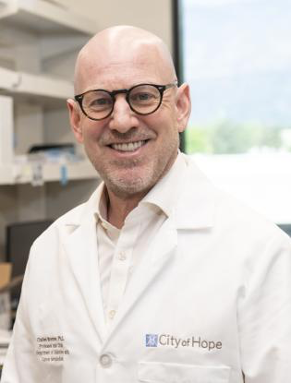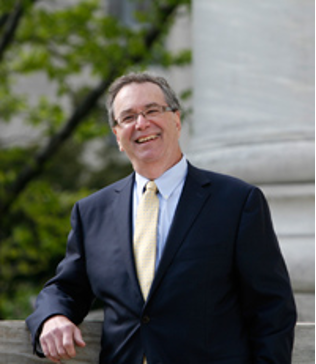Key Points:
- David Sinclair’s latest study, published in a journal for which he is co-editor-in-chief, rocketed through the peer-review process more rapidly than usual.
- Sinclair’s new study was done in human cells with no experiments done in animals, making it difficult to assess “age-reversal.”
- Overall, Sinclair is not propagating any technically incorrect information, as many of the qualms of other scientists are semantic in origin.
Undoubtedly, Harvard Professor Dr. David Sinclair’s work has contributed to the ever-evolving field of aging biology. One thing’s for sure, he’s helped popularize the notion that aging can be reversed with a pill. However, it’s this very claim that has gotten him into trouble with other biologists.
On July 12th, 2023, Sinclair shared his latest publication on Twitter, where most of the Sinclair-bashing goes down. The publication, entitled Chemically induced reprogramming to reverse cellular aging, shows that six different combinations of small molecules can reverse signs of aging in human cells.
Since then, several scientists have commented on Sinclair’s claims over the publication, some of which have been reported on DailyMail.com by Stacy Liberatore, who also interviewed two of these scientists. Additionally, one UC Davis professor has written a not-so-positive review of Sinclair’s paper. What these biologists seem to agree on is that Sinclair may be overhyping his own findings.
Charles Brenner, Ph.D.

Easily the most vocal critic of Sinclair’s work is Dr. Charles Brenner, a researcher at City of Hope in California who published an entire article critiquing Sinclair’s book Lifespan. Since Brenner is involved with the NAD+ precursor nicotinamide riboside (NR) via Tru Niagen and Sinclair with the precursor nicotinamide mononucleotide (NMN) via MetroBiotech, there are financial interest at play. Still, Brenner has had it in with Sinclair for overhyping scientific results, including the idea that aging can be reversed. Brenner also continuously counters Sinclair’s claims on Twitter.
In one tweet, Brenner relays the fact that Sinclair’s manuscript was reviewed and published in a short 12-day span, usually taking around 14 weeks. Brenner also points out that Sinclair is the co-editor-in-chief of the journal Aging, where the study was published.
Brenner goes on to say that the small molecules used in Sinclair’s study were previously discovered by other researchers as long as 15 years ago. Furthermore, Brenner told Dailymail.com that at least three of the molecules (CHIR99021, tranylcypromine, and valproic acid) may be harmful to humans.
“These are generally not safe alone or in combination,” Brenner said.
Matt Kaeberlein, Ph.D.

Matt Kaeberlein, a professor at the University of Washington said in a tweet that the claims of Harvard researchers (referring to Sinclair and his team) developing a chemical approach to reverse aging is not true. He then warns everyone, including Elon Musk — owner of Twitter, and CEO of SpaceX and Tesla — not to take Sinclair and Harvard’s claims too seriously.
Kaeberlein mentions Elon Musk because the richest man in the world sometimes converses with Sinclair on Twitter, bringing more attention to Sinclair.
Musk is one of the few famous billionaires who does not want to live longer. He once told Insider,
“I don’t think we should try to have people live for a really long time. That it would cause asphyxiation of society because the truth is, most people don’t change their mind. They just die. So if they don’t die, we will be stuck with old ideas and society wouldn’t advance.”
While Musk has a somewhat playful attitude towards Sinclair’s ideas, Kaeberlein takes a more direct approach. In regards to Sinclair’s new study, Kaeberlein told DailyMail.com:
“The screening method here is innovative and could lead to important discoveries one day, which is why I say the study is preliminary.
These cocktails they describe here might even have useful therapeutic properties. But there is no direct data in this paper providing evidence for such.
They should have validated at least one of these cocktails in an animal and shown improvements in age-related health metrics or lifespan before making these claims about effects on biological aging.”
The cocktails Kaeberlein refers to are the six small-molecule drug combinations used by Sinclair and his team in the study. Kaeberelein argues that nothing can be said of these cocktails’ age-reversal capabilities if they haven’t been tested in a living system. Since the cocktails were used only on cells in a dish, it is difficult to say what they would do in any living organism, let alone humans.
Paul Knoepfler, Ph.D.

Dr. Paul Knoepfler is a professor at the University of California (UC) Davis who reviewed Sinclair’s latest study in an article titled Review of new David Sinclair paper & anti-aging glitz. In his article, Knoepfler mostly agrees with Brenner and Kaeberlein, saying that Sinclair’s research is not completely novel, overhyped, and needs further testing before making age-reversal claims.
Knoepfler adds that the small molecule technology used in Sinclair’s study can potentially lead to tumor growth. Therefore, there are some safety issues in need of resolution before the technology can be tested in humans. Additionally, when Knoepfler asked an unnamed scholar for their opinion on Sinclair’s claims, they said:
“As a stem cell scientist, I’m insulted by his unsubstantiated claims. At best, he will lead the unaware astray; at worst, he will diminish the credibility of all of us who do serious research with stem cells.”
The unnamed scholar works in the stem cell and reprogramming field. Reprogramming is the process of reverting adult cells to stem cells, which also makes cells appear younger if done partially. So far, reprogramming has involved using what are called Yamanaka factors — a set of four genes discovered by Dr. Shinya Yamanaka. Now, Sinclair is trying to use small molecules instead of Yamanaka factors for reprogramming. These small molecules could make it easier and more cost-effective to implement reprogramming “in a pill.”
Jeffery S. Flier, M.D.

Dr. Flier is a Harvard Distinguished Service Professor at Harvard Medical School, where he was the dean for nearly a decade. In a reply to Brenner’s tweet, Flier says there are many reasons to be concerned about Sinclair’s claims.
Flier’s comment is just icing on the cake for the loads of criticism Sinclair has gotten for his new publication. While Flier does not specify his concerns, he likely shares the same worries as his fellow biologists. Namely, that Sinclair’s interpretation of his own research is overhyped and not yet ready for humans. Other scientists, such as David Mayhew, M.D., Ph.D., of Harvard-affiliated Dana-Farber Cancer Institute are a bit more straightforward:
Is Sinclair Overhyping His Research?
Whether Sinclair is being overly-optimistic, envisions an end goal no one else can see, or is inflating his work for notoriety and potential financial gain, only time will tell. Sinclair and his colleagues have recently reversed vision loss in primates using reprogramming technology via gene therapy, which was also used to reverse signs of aging in mice. These studies hold more promise when it comes to translating age-reversal technology to humans.
When it comes to Sinclair’s latest study, most scientists would agree that more work needs to be done in animal models before the small molecule cocktails are tested in humans. Furthermore, it seems as if terms like “age-reversal” need to be properly defined. Perhaps more stringent criteria should be met before claims of achieving age reversal can be made.